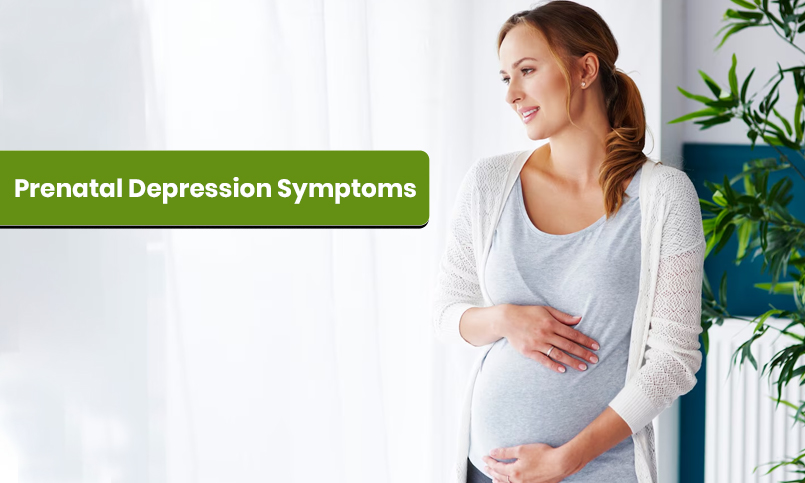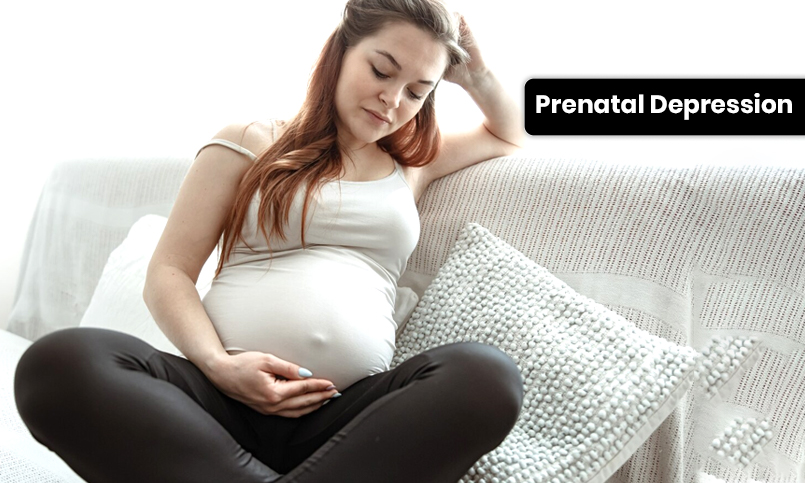Pregnancy is often portrayed as a joyous and exciting time, but for many women, it can also be a period of emotional turmoil. Prenatal depression, also known as antenatal depression, is a serious mental health condition that affects expectant mothers. It’s a topic that deserves attention and understanding, as it can have significant impacts on both the mother and the developing baby.
What is Prenatal Depression?
Prenatal depression signs are a type of clinical depression that occurs during pregnancy. It’s a complex condition that can be influenced by a variety of biological, psychological, and social factors. Contrary to common misconceptions, prenatal depression is not just a case of “pregnancy hormones” or a temporary mood swing. It’s a legitimate mental health disorder that requires professional treatment and support.
Prenatal Depression Symptoms
There is no single cause of prenatal depression during pregnancy, but several risk factors have been identified:
- Hormonal Changes: The fluctuations in hormone levels during pregnancy can impact brain chemistry and contribute to mood disorders.
- Genetic Predisposition: Women with a personal or family history of depression are at a higher risk.
- Life Stressors: Major life events, relationship problems, financial difficulties, or a lack of social support can increase stress levels and trigger depression.
- Previous Pregnancy Complications: Women who have experienced complications or losses during previous pregnancies may be more vulnerable.
- Unplanned Pregnancy: An unplanned pregnancy can be a significant source of stress and anxiety.

Symptoms of Prenatal Depression
The symptoms or signs of prenatal depressions can vary in severity and may include:
- Persistent Sadness or Feelings of Emptiness: These feelings can last for most of the day, nearly every day.
- Loss of Interest or Pleasure: Once enjoyable Activities may no longer bring satisfaction.
- Changes in Appetite or Sleep Patterns: Significant weight gain or loss, insomnia, or excessive sleeping.
- Fatigue or Low Energy: Even simple tasks can feel overwhelming and exhausting.
- Feelings of Worthlessness or Guilt: These negative thoughts can be persistent and irrational.
- Difficulty Concentrating: It may be challenging to focus or make decisions.
- Thoughts of Death or Suicide: These thoughts should be taken seriously and addressed immediately.
Treatment Options for Prenatal Depression
Severe depression is treatable, and there are various options available:
- Psychotherapy: Cognitive-behavioral therapy (CBT) and interpersonal therapy (IPT) are effective forms of counseling that can help manage symptoms and provide coping strategies.
- Antidepressant Medication: Certain antidepressants are considered safe for use during pregnancy, but they should be prescribed and monitored by a healthcare professional.
- Support Groups: Connecting with other expectant mothers who are facing similar challenges can provide a sense of community and understanding.
- Lifestyle Changes: Engaging in regular exercise, practicing relaxation techniques, and maintaining a healthy diet can have a positive impact on mental well-being.
It’s important to consult with a healthcare provider to develop an individualized treatment plan that addresses the specific needs and circumstances of each woman.
Prenatal Depression and Paternal Mental Health
While the focus is often on the mother’s well-being, prenatal depression can also impact the mental health of the expectant father. Partners of women with prenatal depression are at a higher risk of experiencing depression, anxiety, and stress themselves. Seeking support and addressing mental health concerns for both parents is crucial for the overall well-being of the family.
Final Verdict
Prenatal depression is a serious condition that requires attention and support. By understanding the causes, recognizing the symptoms, and seeking appropriate treatment, expectant mothers and their families can navigate this challenging time with greater ease. Remember, seeking help is a sign of strength, not weakness, and prioritizing mental well-being is essential for the health of both the mother and the baby.
Also Read More: headaches during Pregnancy
With the right resources and a supportive network, prenatal depression can be managed, and the joy of welcoming a new life can be fully embraced. Remember, you are not alone in this journey, and there is hope for a brighter future.
FAQs
Is it normal to feel sad during pregnancy?
It’s common to experience mood swings and occasional sadness during pregnancy due to hormonal changes. However, if these feelings persist and interfere with daily life, it may be indicative of prenatal depression, and professional help should be sought.
Can prenatal depression harm the baby?
Untreated prenatal depression can potentially impact the baby’s development and increase the risk of complications such as premature birth or low birth weight. Seeking treatment is important for the well-being of both the mother and the baby.
Can prenatal depression continue after childbirth?
Yes, prenatal depression can persist or even worsen after the baby is born, leading to postpartum depression. It’s essential to continue monitoring and seeking treatment if necessary.
How can partners support a woman with prenatal depression?
Partners can provide emotional support, encourage seeking professional help, assist with household tasks, and attend counseling sessions together. Being understanding and patient is crucial during this challenging time.
